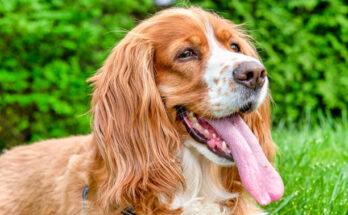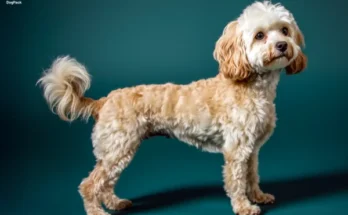The Manchester Terrier serves as a distinguished member of the terrier family because it displays its alert, expressive nature together with its black-and-tan coat. The guide provides extensive knowledge about Manchester Terriers, delivering an informative route from genetics to bodily features and showing training approaches and care methods alongside diet needs and home behavior preparation for existing supporters and prospective pet parents.
Table of Contents
- Introduction to Manchester Terriers
- History and Origin
- Physical Characteristics
- Personality and Temperament
- Training a Manchester Terrier
- Exercise and Activity Needs
- Nutritional Requirements and Diet
- Grooming and Hygiene
- Common Health Issues and Preventive Care
- Socialization and Behavior
- Living Conditions and Adaptability
- Fun Activities and Games
- Conclusion
Introduction to Manchester Terriers
A Manchester Terrier presents itself through its compact design, which encompasses athletic form together with its graceful movements and brilliant intellectual capacity. Manchester Terriers gain their nickname as “Gentleman’s Terrier” because of their elegant appearance, along with their alert nature and spirited character. The Manchester Terrier’s polished design unites its black-colored fur and tan markings to create a dog breed that offers perfect combinations of nice looks and reliability, along with operational features.
Although vibrant and elegant, Manchester Terriers remain pure terriers in spirit because they maintain their strong determination coupled with their inquisitive nature, as well as their independent character. These dogs work well for active people and families who ensure both the physical and mental requirements of their pets are fulfilled.
History and Origin
Origins in England
In the 19th century, Manchester, England, became the birthplace of these dogs when people bred them to hunt vermin and small game. Ratters and hunters valued the extinct Black and Tan Terrier and the Whippet combination as they developed a breed that perfected both skills.
Evolution and Recognition
The Industrial Revolution brought increased popularity for Manchester Terriers because city workers and factory employees found their small size and effective mouse control abilities captivating. The breed gained increasing popularity across urban areas, which finally secured its place as one of the inaugural breeds to register at the American Kennel Club in the 1880s.
Fun Fact:
Scientific records document Manchester Terriers as the earliest recognized modern smooth-coated terrier history demonstrates.
Physical Characteristics
Size and Build
- Toy Variety: Height: Up to 12 inches; Weight: Under 12 pounds
- Standard Variety: Height: 15–16 inches; Weight: 12–22 pounds
The compact body and lean muscular frame, along with their graceful structure, enable these dogs to achieve both speed and agility.
Coat and Color
- Coat Texture: Short, smooth, and glossy
- Color: Jet black with sharply defined mahogany tan points
- Markings: Tan spots above the eyes, on the cheeks, and on the legs
Such dogs need only basic grooming attention, although their closely shaved coat defines their elegant look.
Personality and Temperament
What Are Manchester Terriers Like?
Manchester Terriers exhibit extraordinary intelligence and display confident character combined with high energy for exploration and intense chasing behaviors. Their terrier heritage produces an assertive constitution, together with the tendency to be stubborn, but their loyalty and excitement to obey their owners remain strong. The intelligent nature of Manchester Terriers allows them to learn quickly, yet these dogs become easily uninterested after mastering new tasks.
Are Manchester Terriers Good Family Dogs?
A proper socialization during their early development enables Manchester Terriers to produce exceptional results within family environments. Manchester Terriers form close bonds with every family member while developing deep affection towards children. Their small nature, along with their high alertness, enables them to thrive in homes of all sizes.
Are Manchester Terriers Good Guard Dogs?
Absolutely. Manchester Terriers serve as first-class alarms, although they lack aggressive tendencies. Thanks to their strong awareness and innate wariness of unfamiliar individuals, they promptly warn their owners yet avoid constant barking.
Training a Manchester Terrier

Intelligence and Trainability
The bright, curious nature of Manchester Terriers enables them to easily learn training if it remains interesting. Manchester Terriers benefit most from patient training methods that involve reward-based teaching strategies because of their self-reliance.
Basic Training Tips:
Socialize and train your Manchester Terrier from the moment they begin their puppyhood.
The combination of rewards that include treats, praise, and activities will reinforce their attention.
Harsh discipline should be avoided because Manchester Terriers show high sensitivity thus can become defensive.
Timing your training sessions short and following them with new exercises helps keep your Manchester Terrier focused.
Socialization
Various initial encounters with different people, pets, sounds, and environments guide dogs to develop into well-behaved pets. Any lack of socialization can make Manchester Terriers develop either shyness or territorial behavior.
Exercise and Activity Needs
Daily Exercise Requirements
Manchester Terriers need both physical activities and mental stimulation because they maintain their happiness through energetic movements. Manchester Terriers require at minimum 60 minutes of physical exercise each day to achieve health and happiness.
Exercise Ideas:
- Brisk walks or jogging
- Interactive fetch sessions
- Supervised off-leash time in a secured yard
- Participation in agility or obedience sports
Mental Stimulation
Pet owners must understand that adequate mental stimulation is equally important as exercise for this dog breed. Bonded minds and leveled behaviors result from giving Terriers challenging puzzle games together with innovative command learning and skill development.
Activities for Mental Engagement:
- Puzzle feeders and treat-dispensing toys
- Hide-and-seek games with treats
- Learning complex trick routines
- Nose work and tracking exercises
Nutritional Requirements and Diet
Recommended Diet
Manchester Terriers require eating food that contains high protein with moderate fat content since this helps develop lean muscles and maintain their metabolically active nature.
Ideal Foods:
- Lean meats: chicken, beef, lamb
- Vegetables: carrots, pumpkin, spinach
- Complex carbs: brown rice, oatmeal
- Healthy fats: fish oil, flaxseed for coat support
Feeding Schedule
- Puppies: 3 small meals per day
- Adults: 2 well-balanced meals daily
Avoid overfeeding—this breed can gain weight easily, especially when inactive.
Grooming and Hygiene
Grooming Routine
While owners can easily care for Manchester Terriers thanks to their short single-coat, regular maintenance keeps the dog hygienic while promoting health.
Grooming Essentials:
- Brushing: Once or twice a week with a rubber curry brush
- Bathing: Every 4–6 weeks or when dirty
- Nail Trimming: Every 2–3 weeks
- Ear Cleaning: Weekly check to prevent buildup and infection
- Teeth Brushing: 2–3 times per week
Coat Maintenance by Age
- Puppies: Minimal grooming needed beyond brushing and desensitization
- Adults: Routine brushing and regular hygiene upkeep
Common Health Issues and Preventive Care
Common Health Concerns
Normal Manchester Terriers exhibit good health, but they might develop occasional health problems, which include:
- Von Willebrand’s Disease (a blood clotting disorder)
- Legg-Calvé-Perthes Disease (hip joint degeneration)
- Hypothyroidism
- Eye Issues like cataracts or lens luxation
Preventive Care
- Annual vet checkups with recommended diagnostics
- Genetic testing for breeding dogs
- Routine vaccinations and parasite prevention
- Regular dental cleanings and blood screenings
Catching health concerns early maximizes the Manchester Terrier’s lifespan, which typically ranges from 14 to 16 years.
Socialization and Behavior
Tips for Socializing Your Manchester Terrier:
- Introduce various people, sounds, and animals early
- Attend puppy socialization classes
- Use treats and praise for calm, confident behavior
- Practice structured exposure to unfamiliar environments
Common Behavioral Traits
- Energetic: Always ready for play or action
- Alert: Attuned to their surroundings
- Loyal: Forms close bonds with family
- Sensitive: Responds best to gentle handling
- Terrier Tenacity: May be persistent and single-minded
Living Conditions and Adaptability
Best Living Environments
The diverse nature of the Manchester Terrier enables it to make a happy home in urban apartments, together with rural properties, when owners fulfill the dog’s requirements.
Suitable Homes:
- Apartments with daily outdoor time
- Suburban homes with fenced yards
- Urban settings with proximity to parks
Climate Sensitivity
- Cold Weather: May require dog sweaters in winter
- Hot Weather: Monitor for overheating; always provide water and shade
Their short coat offers little insulation, making temperature regulation a concern.
Fun Activities and Games
Physical and Mental Games
Entertainment for Manchester Terriers requires a combination of physical exercise and mental challenge activities.
Game Ideas:
- Agility: Perfect for this nimble, quick-footed breed
- Tug-of-war: Great for bonding and energy release
- Hide and seek: Stimulates hunting instincts
- Trick contests: Showcase their intelligence and obedience
Enrichment Tools
- Food puzzles and lick mats
- Treat-dispensing toys
- Obedience drills with rewards
- Dog-safe obstacle courses
A rotating activity schedule prevents boredom and undesirable behaviors.
Conclusion
The Manchester Terrier exists as a detailed, small yet powerful dog that combines elegance with loyalty and strong determination. This breed achieves its best results through a combination of physical workouts with mental activities and continuous training, together with early socialization in any household. The Manchester Terrier has earned a place among the most likable terrier breeds thanks to its soulful devotion to its family, along with elegant good looks and animated character.
Key Takeaways:
The entire well-being of Manchester Terriers depends on regular physical exercise together with intellectual stimulation, which maintains their equilibrium.
Despite their simple care requirements, their coat remains easy to groom.
The early exposure of puppies to social interactions creates dogs that become adults with confidence and friendliness.
Manchester creates enduring bonds with its relatives while proving outstanding watchdog capabilities.
The arrival of a Manchester Terrier in your household guarantees an extended and playful friendship alongside appealing physical qualities and a dedicated friendship.




